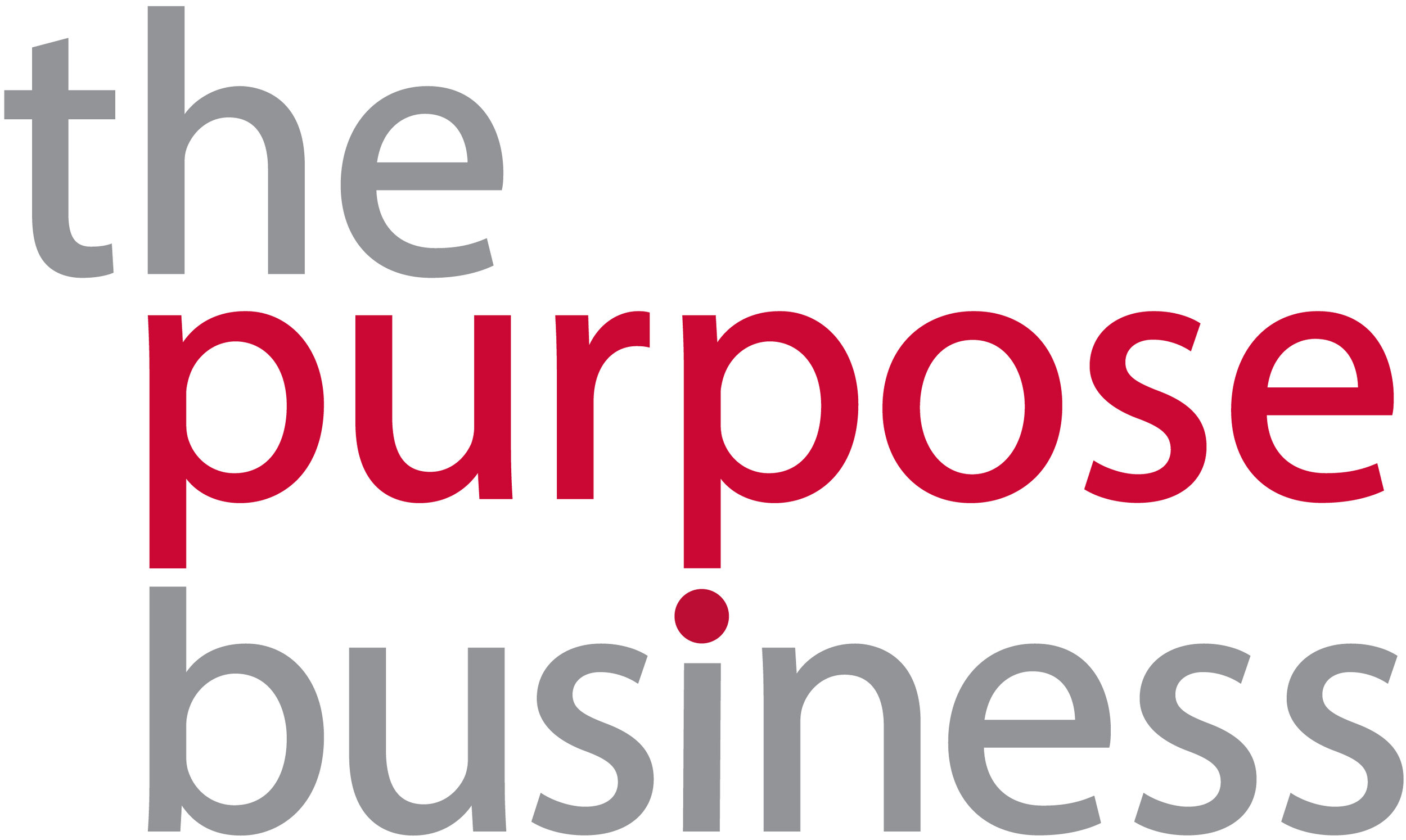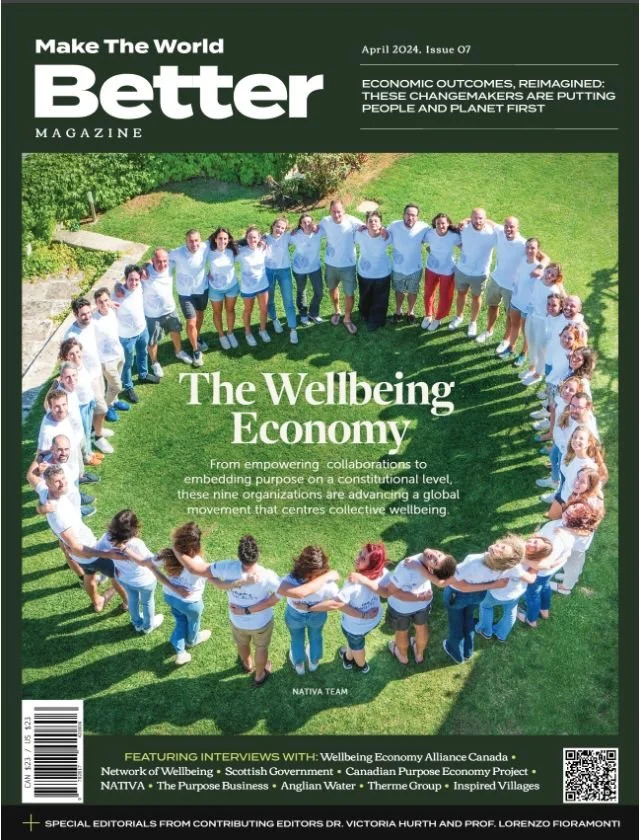Purpose: Now is the time to ask why – and how
The world is facing massive challenges that are exponentially disruptive. Businesses have the opportunity to make a positive impact – but first, they need clarity on their purpose. We’ve highlighted four distinct movements that are forcing this rethink.
Our collective need for wellbeing has never been more important than today.
With the planet at the tipping point of environmental catastrophe, compounded by simultaneous pressures including supply chain shortages, a lack of transparency around labour practices and the not so small matter of a paralysing pandemic, the problems we face are not only correlated – but also exponentially disruptive.
These massive challenges, however, come with opportunities for businesses to use their power for positive impact. The question is, where do you start?
Firstly, to recognise these opportunities, businesses must be introspective around a fundamental principle – their purpose. If vision is where businesses want to go and mission is what they do or sell, then purpose is why they exist in the first place. It is what the Japanese call ‘ikigai’ – their reason for being. To guide this introspection, we have identified four distinct movements that are forcing a rethink on environmental, social and governance pressures and demonstrating how clarity, and more importantly, activation, of purpose can unlock new opportunities.
1. Leadership is in crisis
As the world seeks relief from a barrage of unprecedented challenges, people naturally turn to leadership for guidance. However, societal leaders across the board – from government to media, business to religion – continue to suffer from credibility problems. In particular, business credibility is tracking record lows in several countries around the globe, according to the 2021 Edelman Trust Barometer. The report shows that in China, the share of employees that trust their employers dropped 12 points from 2020.
With remote work as the new business norm, we need leadership to not only be clear, transparent and accessible; but also empathise with the needs of a changing workforce. Purposeful leadership aligns people when there are shared goals and empowered decision-making, making room for creative ideas and innovation.
When we worked with a publicly listed food and beverage product company in the Philippines in 2020 to articulate their purpose, our starting focus was to unpack the distinct problem that the business could address, the unique role they played and the impact they made. We facilitated collaborative sessions that engaged a wide range of stakeholders – from C-Suite executives to next generation leaders to local distributors and international investors, to ensure their purpose spoke true of their impact both internally and externally. The result? An alignment on purpose, values and ambition that strengthened their strategies for attracting top talent and continuing to bring delight through food choices.
2. Public pressure holds business accountable
Companies are facing increasing public and regulatory pressure to manage their environmental footprint. Last year, the three largest economies in East Asia – China, Japan and South Korea – pledged to reach net-zero carbon emissions by 2050. More and more companies are declaring the same intent.
Climate change could cost the global economy US$23 trillion by 2050, according to Swiss Re. Given the clear business imperatives for sustainability, executives must reimagine how they produce, consume and market their operations to be part of the effort to mitigate climate change – and stop being part of the problem.
Responding to these risks can also open opportunities to grow and sustain businesses even more. There’s been an uptake in renewable energy and tech in property development and the use of robotics in construction to reduce health and safety issues across contracted labour. Likewise, the surge in plant-based innovations in Asia, from Beyond Meat, Quorn, Karana to movements like a billionveg are driving traditional food manufacturers to diversify their protein while shifting to low carbon solutions.
3. Digital media keeps brands in check
The ceaseless rise of digital channels continues to drive transparency, meaning that businesses are no longer solely in control of their brand narratives. Consumers and businesses alike use social media to assert influence and sway consumer behaviour.
With external influences more critical than ever before, true clarity of purpose can help businesses act with authenticity. Engaging with social media can rally a force for good, such as employees keeping Amazon in check with their support for Black Lives Matter. But brands must also be cautious and remain authentic. For example, after launching its intriguing “Hello, I’m A Paper Bottle” campaign earlier this year, Innisfree was then accused of greenwashing as social media users exposed the product as a plastic bottle wrapped in paper.
4. Boards must look to the long-term
In 2019, the Business Roundtable released a new Statement on the Purpose of a Corporation, signed by 181 CEOs committing to lead for the benefit of all stakeholder groups. Today, 83% of consumers believe that companies should actively be shaping ESG best practices and 91% of business leaders agree that their company has an obligation to act on ESG issues, according to a recent PwC study.
However, Harvard Business Review research also suggests that boards are obstructing ESG by favouring short-term rewards over long-term purpose. With only 38% of board members believing that ESG issues have a financial impact on a company, it is clearly time for a change in leadership mindset. Boards, touted as custodians of vision and strategy, must be in sync with a company’s purpose – and champion it.
Looking ahead: purpose pays
Overall, the need to rethink purpose may seem largely driven by external socio-economic factors. But it's important to note that increasing demand from employees is also pushing companies to be more forthcoming in both articulating and activating their purpose. As such, true engagement with ESG needs to be founded on an understanding of how a company can drive positive impact through their people, products and processes. After all, companies with a clear sense of purpose perform better. Purpose enhances business value and enables companies to maximise the opportunities that await in challenges.
In the end, purpose pays!




